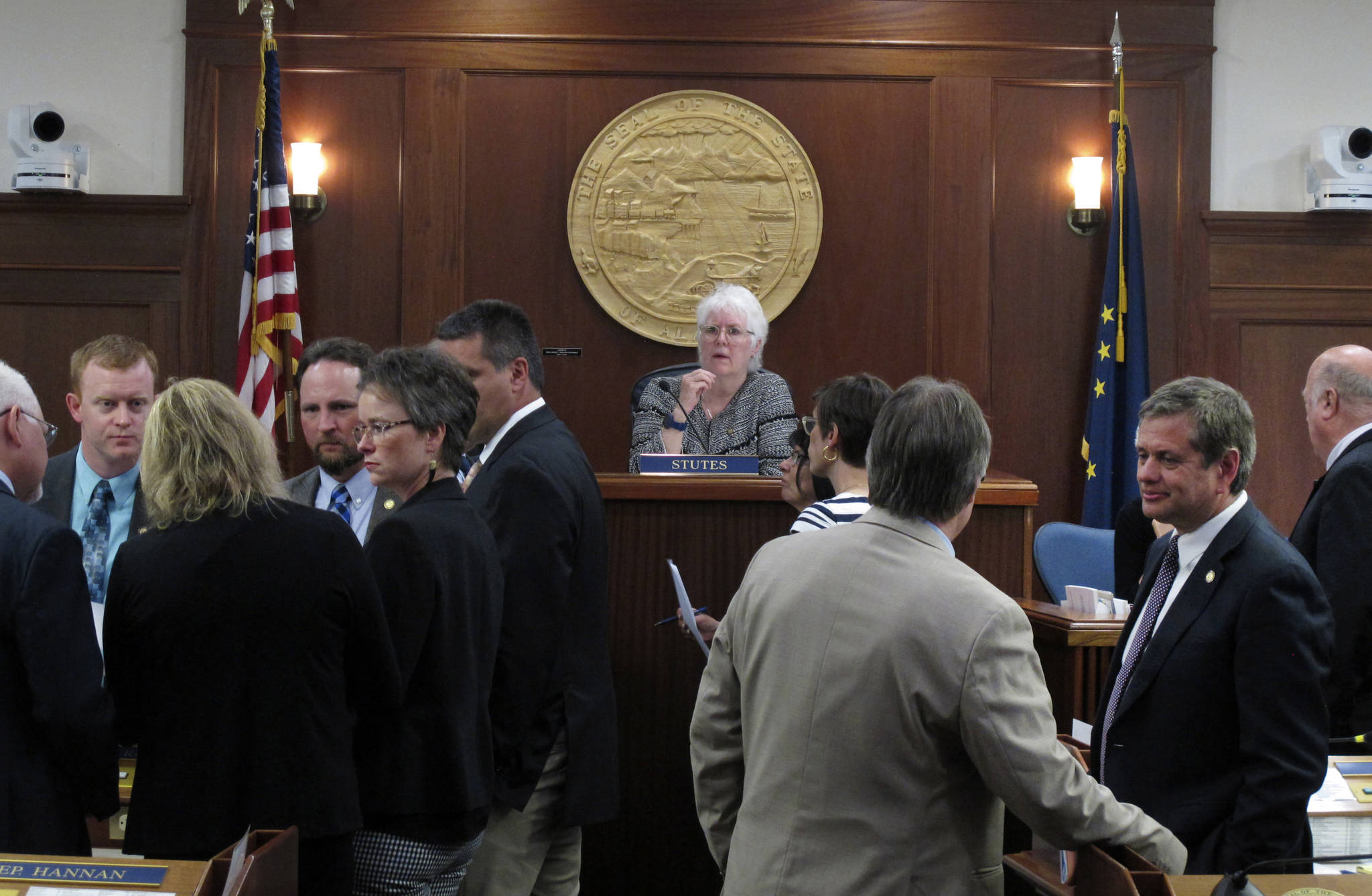By Becky Bohrer
Associated Press
JUNEAU — A state court judge on Tuesday scheduled arguments for next month involving whether Alaska Attorney General Treg Taylor’s lawsuit over the state budget process is moot and should be dismissed.
Superior Court Judge Herman Walker previously said he intended to dismiss the case after the state House Monday passed effective date provisions for a budget package that it had failed to adopt earlier this month. Walker set a Tuesday deadline for parties involved in the case to explain why he shouldn’t dismiss the matter as moot.
During a brief hearing Tuesday in Anchorage, Walker agreed to hear arguments July 23.
Taylor sued the Legislative Affairs Agency after the House on June 15 failed to adopt the effective date provisions. Gov. Mike Dunleavy called the budget “defective,” highlighting the effective date failure as a concern.
Taylor, in his lawsuit, argued that under the state constitution, laws don’t become effective until 90 days after enactment unless the Legislature with two-thirds support in each chamber provides for other effective dates. He said retroactive provisions in the bill did not provide a workaround. The new fiscal year begins Thursday.
Megan Wallace, a top legislative attorney, in a memo to the House speaker said the governor could give heed to retroactive provisions in the bill or use other tools to keep state government operating until it takes effect, such as interim borrowing.
While a number of legislators disagreed with Dunleavy’s interpretation, the House got the support needed Monday to take another vote and pass the effective date provisions. Dunleavy said that action would avert a threatened partial government shutdown.
The Department of Law, which Taylor leads, said Taylor still wanted a court to weigh in on the effective date issue.
“This has implications for years to come, and it is much better to decide the issue before it arises again in the future with another potential shutdown,” Taylor said in a statement Monday.
Attorneys representing the Legislative Affairs Agency, in court documents, said the case should be dismissed. They argued, among other things, that political lawsuits brought by the state against the Legislature are barred by Alaska’s constitution.
The Legislative Affairs Agency carries out policy set by the Legislative Council, composed of House and Senate leaders, and provides other legislative services. It does not have the power of appropriation; that rests with the Legislature, the agency’s attorneys said.
The lawsuit “inappropriately” uses the agency as a “proxy for the legislature,” attorneys James Torgerson, Kevin Cuddy and Connor Smith, representing the agency, argued in court documents.
Documents filed by the agency’s attorneys included a letter from Dunleavy to state Supreme Court Chief Justice Joel Bolger, dated June 18, in which Dunleavy outlined differing views on the effective date issue and said he had asked Taylor “to seek a determination of the issue” through the courts.
Dunleavy asked that the issue be addressed “in the most expedited way possible.”
Bolger, in a response letter, told Dunleavy he could not engage in such communications and said he was sure that Taylor’s office was “familiar with the proper procedures to bring your concerns to the attention of the appropriate forum.”

